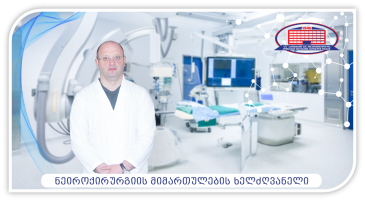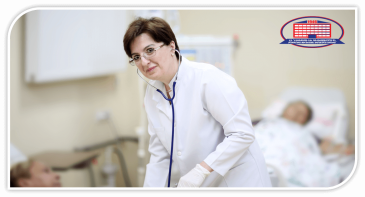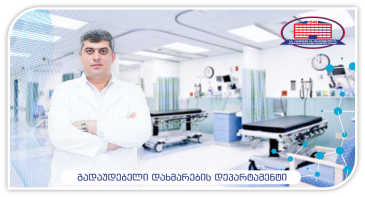Lika Khosroshvili, Cardiologist-Therapist at the National Center of Surgery and Doctor of Medicine, is our respondent.
-What is your educational background, professional experience, and when did you join the National Center of Surgery?
-I graduated from Tbilisi State Medical University's Medical Faculty in 1998. I worked as an on-call ambulance doctor. I completed residency and furthered my education in cardiology. After that, I successfully defended my Ph.D. candidate's dissertation in Cardiovascular Surgery. Following these and other accomplishments, I joined the National Center of Surgery in 2014. At the same time, I direct our center's cardiac resident program.
-When and why did you decide on your profession, and more precisely, the field in which you work?
-when I was graduating from high school, I recognized that I was most interested in the medical profession. Of course, I had no idea what path I would have to undertake before becoming a doctor, let alone what a demanding and responsible lifestyle I would have to live with as a doctor. However, I was well aware that enrolling in a medical institute required a significant amount of hard work, patience, and diligence. I believe it was the development of these characteristics that enabled me to remain devoted to this challenging but highly humanitarian profession to this day. In the field of cardiology, I chose to work at the 03 Emergency Medical Center. Cardiac patients were so complex, challenging, and unexpected that I desired additional information and experience in this sector.
-What does being a doctor mean to you?
-Being a doctor is a way of life for me, which means that I devote the majority of my time, energy, and thought to this profession. I am a doctor at all times and in all places.
-What do you regard to be the most difficult challenge of your job?
-I regard the rapid rate of growth, as medicine's greatest intellectual and material-technical challenge.
-What is the biggest desire and goal you want to achieve in your career?
-Perfection should be pursued at all times, both personally and professionally. Today's medicine necessitates continuous development, being acquainted with scientific innovations and incorporating them into the profession, as well as regular reading and cognition, which is not always simple. You will not be a demanding, successful doctor otherwise. Nonetheless, this profession necessitates a great deal of affection, which the patient believes is infallible. This, I believe, is my objective and goal: to convey warmth and affection to all patients.
-What advice would you provide to those who are now considering a career?
-I would compare choosing a career to selecting a life partner. That, I believe, says it all. At the outset of this decision, I would advise observation, patience, love, and dedication.
-What do you think about the latest challenge of medicine - COVID 19?
-COVID-19 is a virus that is still at the cognitive stage for modern medicine. Mankind is gradually encrypting its origins in order to find therapy and preventative methods. I am confident that with our combined efforts, we will eventually beat it.
-How do you envisage the field in which you work evolving after ten years?
-The introduction of modern technologies in medicine has resulted in effective illness diagnosis, treatment, and prevention. This is yet another step toward patient healing and life extension. I anticipate stronger improvement in this direction after ten years. At the same time, I want every Georgian to have access to all of the good news and benefits that medical and scientific advancement has to offer.









